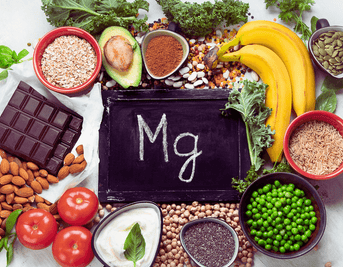
Magnesium is a vital mineral involved in over 300 enzymatic reactions in the body, supporting muscle function, energy production, and hormonal balance. Despite its importance, many people are deficient. Learn more in this blog.
Keep Reading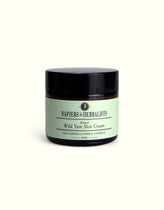
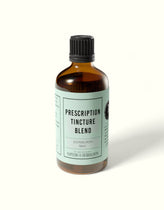
Buy your prescription tincture blend here. Select the size that you need. At 5ml three times a day: 100ml will last a...
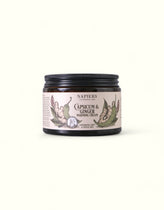
Ease and relax your hardworking joints and muscles. Napiers warming cream is used to comfort muscles, joints, backs a...
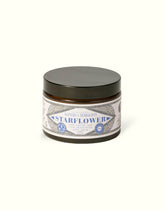
Quick moisturising relief from dry, irritated, itchy skin. Moisturises and soothes dry, itchy skin Cools and calms h...
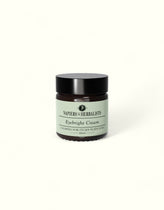
A Cooling, Soothing, Calming Eye Cream for Itchy and Puffy Eyes. Cooling, refreshing, and soothing to puffy, irrit...
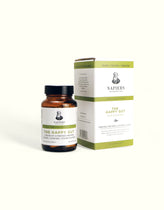
A complete blend of friendly bacteria, vitamin D, digestive enzymes & prebiotic fibres
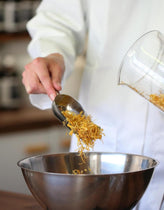
Buy your prescription herbal tea blend here. Select the size that you need. Please enter the following into the Comme...

Magnesium is a vital mineral involved in over 300 enzymatic reactions in the body, supporting muscle function, energy production, and hormonal balance. Despite its importance, many people are deficient. Learn more in this blog.
Keep Reading
Supporting your immune system naturally is a proactive way to enhance overall health. Here, we’ll explore key herbs, vitamins, and minerals, including the benefits of Vitamin D3 with K2, probiotics, elderberry, and other powerful botanicals and nu...
Keep Reading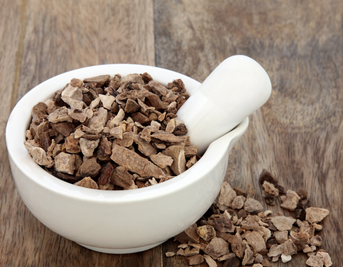
Wild yam is a captivating plant with both a rich folklore and emerging scientific research. Known for its root, called wild yam root, this plant has been a cornerstone in traditional medicine for ages.
Keep Reading
On Monday 28th October, Medical Herbalist Wendy Kelly joined us for a free webinar discussing natural menopause support. Watch the full video here.
Keep Reading





Alan is a fully qualified Five Element Acupuncturist and has been practising this wonderful system of medicine at Napiers Clinic in the West End of Glasgow for the past 18 years.

Angela practices Herbal Medicine at Napiers Bathgate, Edinburgh & Glasgow, as well as with the Napiers CLAID Clinic.

Audrey is a Medical Herbalist, graduating in 2007 with a BSc (Hons) in Herbal Medicine & Phytotherapy from Edinburgh’s Napier University and is a registered member of the National Institute of Medical Herbalists (MNIMH). Audrey is a practicing member within the Napiers CLAID Clinic.

As a fully qualified, experienced Holistic Therapist, Bettina works with clients on a one-to-one basis to establish an optimal treatment plan or therapy to best support your skin health and well-being.

Cat offers a range of massage including holistic, deep tissue, trigger point therapy, advanced sports stretching and pregnancy massge.

Claire is an experienced Western Medical Herbalist (BSc), a member of the National Institute of Medical Herbalists (NIMH) and works at Napiers online clinic.

Clare is an experienced medical herbalist based in the West Highlands of Scotland, home to deer, livestock, ticks, and Lyme disease. She works for the Napier's CLAID clinic on a Thursday morning.

Clare began training at Edinburgh’s Napier University in 2005, gaining a Bachelor of Science Degree in Herbal Medicine in 2009. She joined the Napiers Clinic team shortly after her graduation, initially working in the dispensary before beginning her herbal practice in 2010. Since then she has been a key member of our clinical team, working alongside Dee Atkinson in running the general herbal clinics, as well as heading the Baby & Child Clinic.

Cybele is a passionate Sophrologist and founder of Chamapola, Healing Yourself - Healing Together.

Dean is a Naturopathic Practitioner experienced in Nutrition and Herbal Medicine. With interests in nerve problems, cardiovascular health, digestive disorders as well as male and female reproductive system wellbeing.

Dee is the senior herbal practitioner at Napiers the Herbalists in Edinburgh. She runs a general medicine clinic with a special interest in women’s health, managing hormonal health and ageing. More recently, Dee set up the Napiers Long Covid Clinic to facilitate an integrated approach between doctors, herbalists and nutritionist to this new disease.

Isabelle has over 20 years helping individuals and couples achieve their fertility goals through nutrition.

Jill is a fully qualified and insured Advanced Clinical Massage Therapist offering Outcome Based Treatments

John is a friendly and experienced counsellor offering 1-1 sessions on Fridays at Napiers Clinic in Edinburgh city centre and online via FaceTime/Skype. He has worked in private practice supporting people for over 18 years and brings a wealth of experience.

Kate is a BANT registered Nutritionist who owns and runs the Edinburgh Clinic of Nutrition. She trained for three and a half years at Patrick Holford's renowned Institute of Optimum Nutrition in London and is currently studying with The Institute of Functional Medicine in the US.

Kim is qualified in Aromatherapy Massage and Indian Head Massage. Working with the needs of her massage clients led to a deeper interest in their health and Kim studied the BSc (Hons) Herbal Medicine degree at Napier University, Edinburgh. Kim is one of the lead herbalists within the Napiers CLAID Clinic and sees many patients.

Kirstin is a fully qualified member of the Society of Homeopaths and holds an RSHom distinction in Classical Homeopathy. Kirstin qualified from the Northwest College of Homeopathy's four-year training course in Manchester.

Lynn is a registered osteopath and has been practicing osteopathy for nineteen years. She studied osteopathy and cranial sacral therapy at the European School of Osteopathy and graduated in 1991. Lynn has a background in physiotherapy and is trained in structural, craniosacral, functional, fascial and visceral osteopathy.

Malgorzata graduated from the College of Naturopathic Medicine where she studied Western Herbal Medicine and Naturopathic Nutrition /Diplomas in Herbal Medicine (2017), Naturopathy (2017), and Naturopathic Nutrition (2020). She is also qualified in KORE Therapy, Anmo-fu - 5 Element Abdominal Massage, Craniosacral Balance and Stress Release Therapy and Cupping. Her first degree is a PhD in History.

Margaret practices Naturopathic Nutritional Therapy at Napiers Edinburgh.

Mark runs the podiatry clinic, offering diagnosis and treatment of various disorders relating to the feet, ankles, legs and lower back. He offers podiatry, chiropody, orthotics and nail surgery.

Mary is a qualified therapist in Swedish, Indian and Thai Foot Massage.

Mary trained in Edinburgh, and has been working as a complementary therapist since 1999, holding diplomas in Clinical Aromatherapy, Reflexology, Therapeutic Massage and Hopi Ear Candling gained from the International Therapy Examinations Council (ITEC). She is a member of, and is fully insured to practice with, the Complementary Therapists Association (CThA).

Melissa qualified from Middlesex University in 2000. She runs a general herbal practice from her boat, The Herbal Barge, which is based on the river Lea in North London. Melissa joined the CLAID Clinic Co-operative to work collaboratively in an integrated and specialised context to support patients with long covid.

Mike is a body worker and NLP Practitioner who is passionate about working with the person as a whole; offering treatments that integrate body and mind.

Monica has a Masters degree in herbal medicine from the University of Central Lancashire. She is the research herbalist heading up the Napiers CLAID Clinic. The CLAID Clinic specialism is Lyme disease Borrelia burgdorferi and co-infections - crypto-infections Bartonella, Babesia, Rickettsia, Erlichia, Anaplasma, Mycoplasma, etc. A research herbalist is not the same as a medical herbalist and Monica does not run a general clinical practice. This allows her to focus on Lyme disease and bacterial and viral infections.

Natasha is an experienced and qualified medical herbalist in Western herbal medicine, a forager and mycotherapist. As well as practicing as part of Napiers' general herbal medicine practice, she also sees patients as part of the CLAID Clinic.

Nikki was awarded a first class honours degree in Herbal Medicine from the University of East London and trained at clinics in Glasgow and London. She was also awarded the Arthur Barker prize for her final examination grades. Nikki also has ITEC Diplomas in Holistic Massage and Aromatherapy. She is a member of the National Institute of Medical Herbalists which is the UK’s leading professional body representing herbal practitioners. NIMH members follow a strict code of conduct and are committed to ongoing and continual practitioner development and training.

Ona Madorell is a qualified Naturopathic Nutritionist, graduating with distinction from the College of Naturopathic Medicine (CNM). She has further enhanced her expertise through a course in blood test interpretation and a postgraduate program focused on the microbiome.

Pearlyn is a licensed acupuncturist and a registered member of the Acupuncture Society, and is fully insured to practice acupuncture, tuina, cupping and moxibustion.

Rebecca is an Associate Nutritionist, specialising in gut health and women's health, from hormone imbalance to fertility, pregnancy and beyond.

Sara is qualified Medical Herbalist, Ayurvedic Therapist and Yoga teacher, holding an MSc. in Western Herbal Medicine from Middlesex University.

Satya trained at the School of Natural Medicine where she graduated with a Diploma in Healing Diets and additional immersion studies in Herbal Medicine, Healing Diets, Iridology & Naturopathy, Quantum Botanicals and Flower Essences. Satya has a Nonviolent Communication Leadership Certificate with Bay NVC and an MA in European Dance Theatre Practice from Trinity Laban.

Sheila is a Holistic Therapist who qualified in KCR in 2019 with the KCR Academy. After a long career in retail, an ankle injury led her to seek an alternative approach to healing.

Shona has worked at Napiers Clinic for 30 years where she has picked up a wealth of knowledge about various complementary therapies. She trained as a Food Sensitivity tester with The Health Partnership Company, where she was taught how to use the 3 point marker system.

Thanos is an experienced Medical Herbalist and practises as a Herbalist and Orthopaedic Acupuncturist at Napiers in Edinburgh and at Napiers Bathgate.

Wendy qualified in 2002 with a BSc(Hons) in Phytotherapy. Since then she has practiced in Fife, Angus and the Lothians. She is a member of the National Institute of Medical Herbalists.
by Monica Wilde
4 November 2014

Ingredients
3 pieces dried kelp (presoak)
4 spring onions (chopped)
1 stick celery (diced)
1 carrot (diced)
1 pack tofu (or cooked chicken)
2 tbsp dried porcini mushrooms
Directions
Gently fry spring onions, celery & carrot in a little butter or oil then add cold water. Add presoaked mushrooms & seaweed and cubed tofu (or chicken). Bring to the boil. Simmer for 10 minutes. Season, if needed, with miso or soy sauce.
Variations
Try adding some pak choi, spinach of kale leaves to the simmering stage.
For a spicy version fry a little diced chilli pepper, garlic or fresh ginger sticks with the onions.
Gather your own seaweed
The kelp sold in store is usually called Japanese kombu Laminaria japonica. All around the British coast we have Laminaria digitata often called oarweed or just kelp. It has long rubbery fronds and is often cast up on the beaches. However, if you walk out at a low tide you can gather this fresh from where it grows on the rocks when it is exposed at low water. Cut some of the fronds off with scissors (so you don't damage the stipe ('roots') that it is attached to the rocks with). Just rinse in clean seawater and hang up on a line to dry as soon as you can. If you do leave it in a bag overnight it may require a further rinse in fresh water as it will exude a little gel.

Once the strips are dry, store them in an airtight container and use them in soups, stews and casseroles. With short cooking times you may need to remove them, just like you would remove a bay leaf, as they may be a little chewy. With longer cooking times they will become tender and nutritious.
The gel that kelp gives off is called alginate. It has been proven that alginates improve satiety. That means that they make you feel fuller as they swell slightly in your stomach, so you naturally eat smaller portions. They also help to thicken your sauces without the further addition of flour.
Cooking with seaweed provides a host of vitamins, minerals, amino acids, trace nutrients and most importantly, iodine.

Magnesium is a vital mineral involved in over 300 enzymatic reactions in the body, supporting muscle function, energy production, and hormonal balance. Despite its importance, many people are deficient. Learn more in this blog.
Keep Reading
Supporting your immune system naturally is a proactive way to enhance overall health. Here, we’ll explore key herbs, vitamins, and minerals, including the benefits of Vitamin D3 with K2, probiotics, elderberry, and other powerful botanicals and nu...
Keep Reading
Wild yam is a captivating plant with both a rich folklore and emerging scientific research. Known for its root, called wild yam root, this plant has been a cornerstone in traditional medicine for ages.
Keep Reading